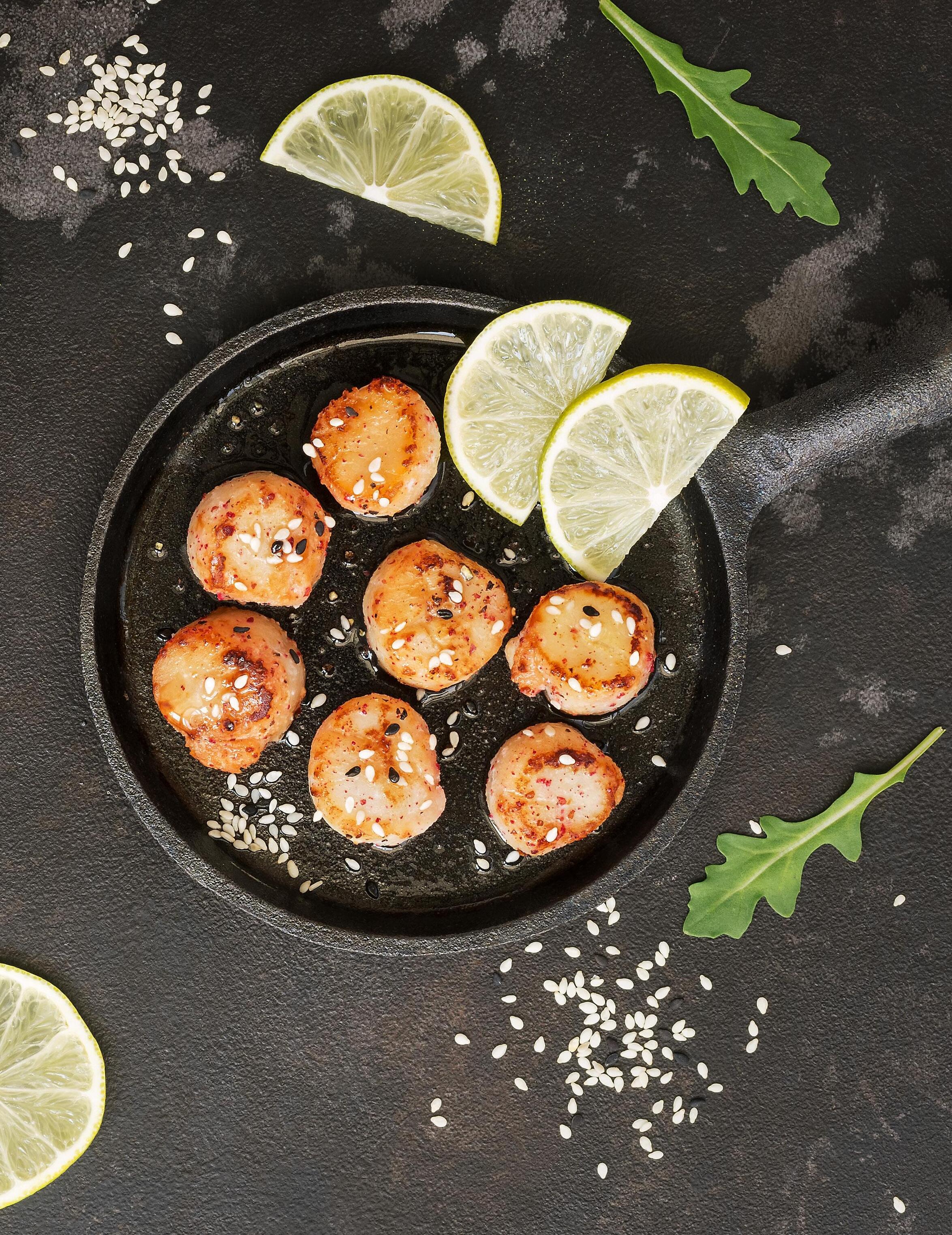ECLAC Caribbean continues
ITS DEVELOPMENT ACCOUNT PROJECT




ITS DEVELOPMENT ACCOUNT PROJECT



CLOSING OF DIGITAL GENDER GAP
IMPROVING STATISTICAL LITERACY IN THE CARIBBEAN

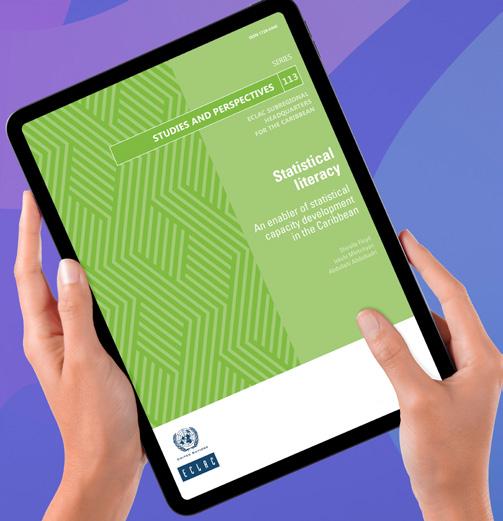


Issued on a monthly basis, The Hummingbird offers insights into the latest projects, publications, technical assistance missions and research carried out by ECLAC Caribbean. In addition to these, sneak previews are provided of the most salient upcoming events, alongside enriching followups to previously covered issues. With a view to featuring a variety of facets of Caribbean life and lifestyle, The Hummingbird also zooms in on cultural activities and landmark occurrences through an eye-opening regional round-up.
Editor: Jabari Fraser
Copy Editor: Denise Balgobin
Proof Reader: Veera Deokiesingh-Fraser
Publication Design: Liseanne Martin-Subero
Please see our contact details on the back cover of this magazine.
A HUMMING BIRD FEATURE: ECLAC Caribbean continues its Development Account project … with recommendations for tourism sustainability
28 April
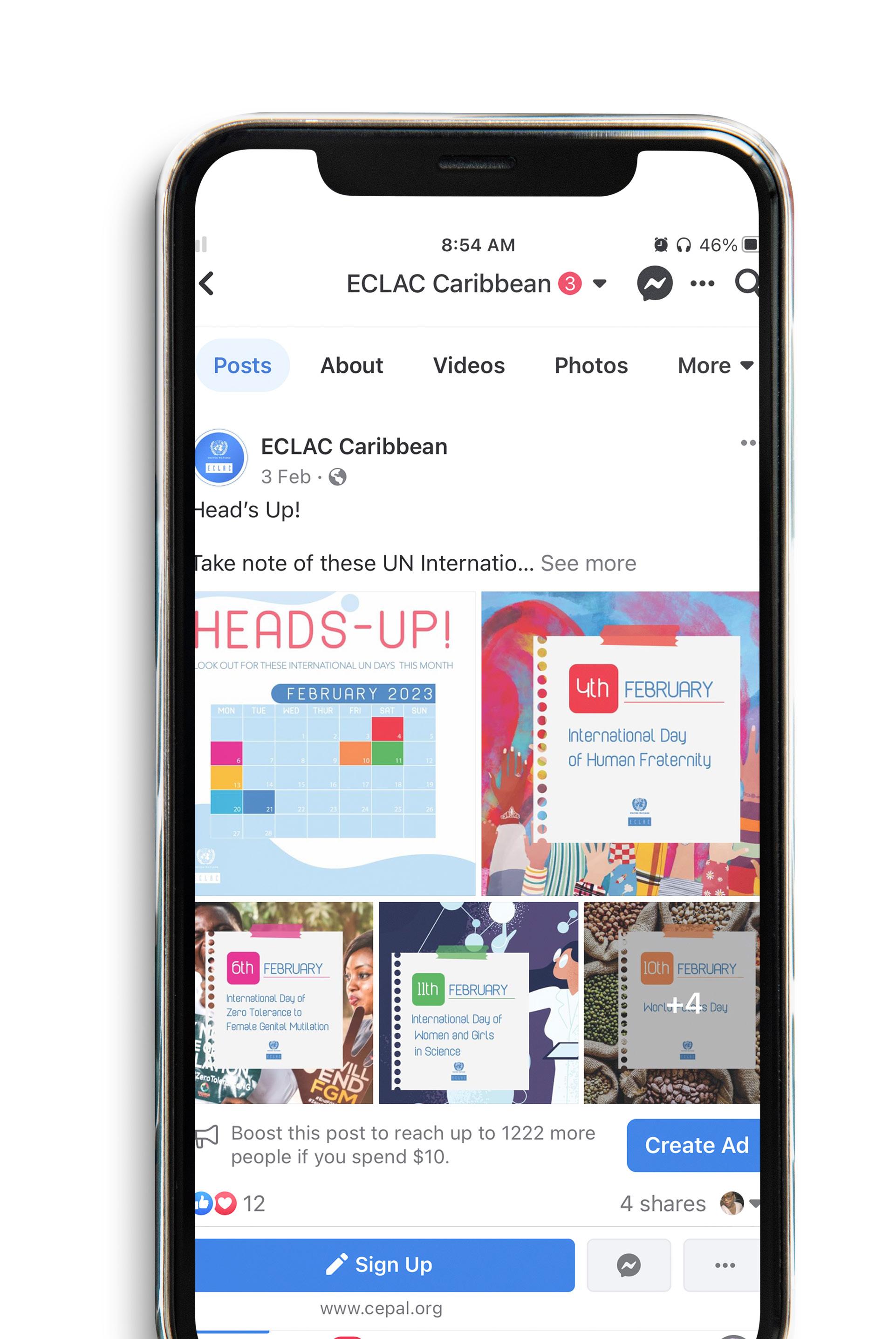
10 MAY 2023
Caribbean SIDS relevant climate change and disasters indicators for evidence-based policies: Final regional workshop of the project 2023
30 MAY 2023
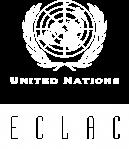
First session of the Regional Conference on South South Cooperation in Latin America and the Caribbean

To commemorate International Women's Day (IWD) 2023 (March 8), ECLAC made a call for supporting women's effective connectivity, to increase their participation in Science, Technology, Engineering and Mathematics (STEM) careers, and to eradicate gender-based cyberviolence.
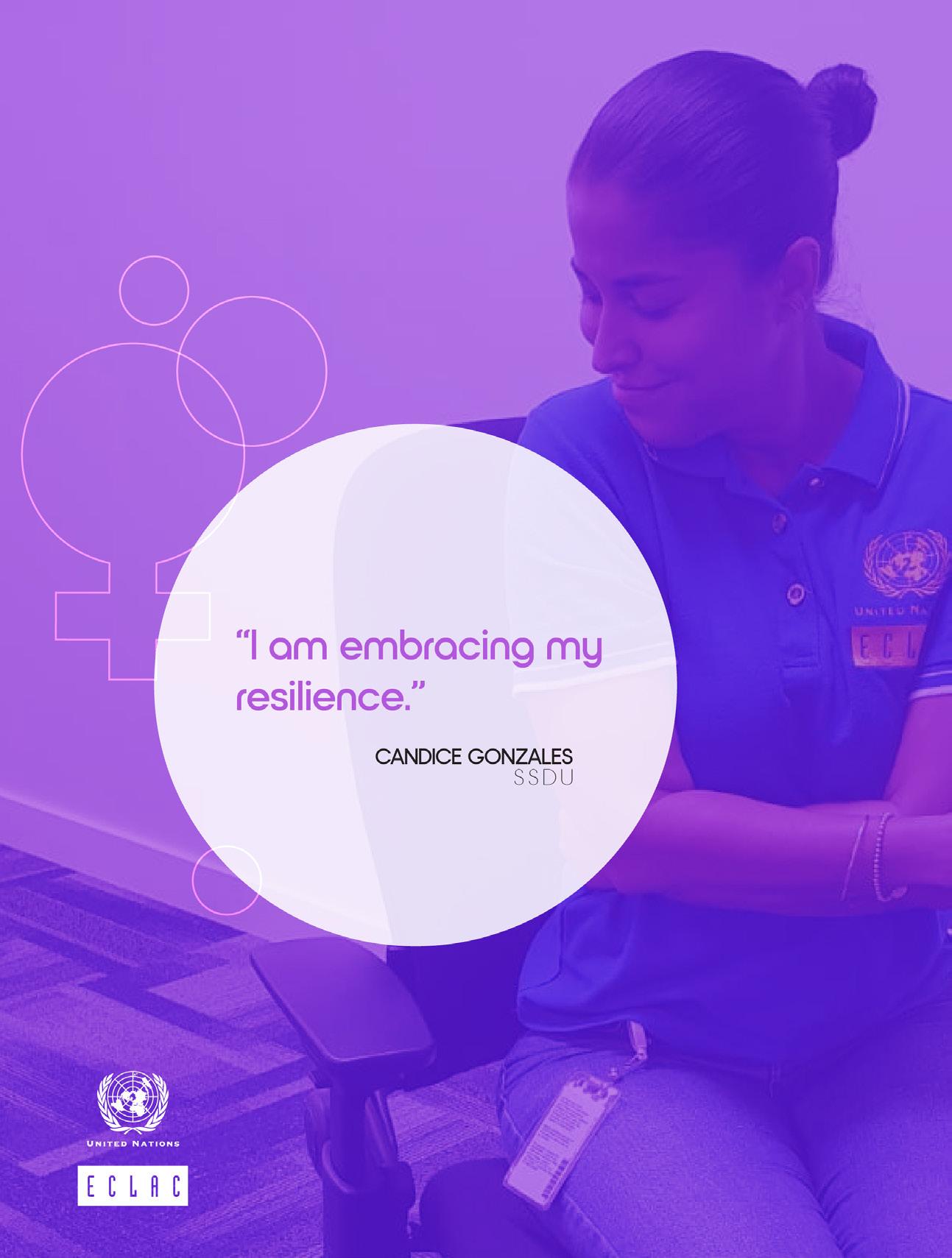
The IWD theme this year was "For an inclusive digital world: Innovation and technology for gender equality". In Latin America and the Caribbean, the benefits of the internet are uneven: an estimated 244 million inhabitants in the region do not have access to these services. The differences in connectivity access between urban and rural areas are particularly alarming: while 68% of urban households in the region were connected to the internet in 2018, only 23% of households in rural areas had access.
Women experience more precarious conditions when they access the internet, this according to the document: “Gender equality and the autonomy of women and girls
in the digital age: contributions of education and digital transformation in Latin America and the Caribbean”, which was prepared by ECLAC, UN Women and the UN Organization for the Advancement of Women and the Empowerment of Women Education, Science and Culture (UNESCO).

ECLAC warns that women and girls experience different forms of violence through digital media. This violence is considered genderbased as it is generally sexist and sexualized. It is expressed through threats, discriminatory speeches, sexual harassment, invasion of privacy, non-consensual disclosure of images, among other cybercrimes. Furthermore, genderbased cyberviolence is exacerbated, in particular, among women human rights defenders, women politicians, communicators and journalists, and leaders in the public space.
"At ECLAC, we recognize the talent, strength and creativity of women and girls in the region. However, we note the structural persistence
of gender inequality. The data speak for themselves and call us to action," said Executive Secretary José Manuel Salazar-Xirinachs.
"This 8 March, the call on the one hand, was to reduce the digital gender gap and guarantee the full participation of women in technological development and knowledge and, on the other, to move towards the care society, a style of development that puts equality and sustainability of life at the center and that leaves no person behind.”
Notably, ECLAC Caribbean’s Director, Diane Quarless, who participated in the meeting, said: “We all must recognize the small actions of women and men across the Caribbean, that have a big impact on moving us all closer to the regional goal of achieving gender equality by 2030.”
Quarless notes that many of the Caribbean’s feminist victories have resulted from the actions of individuals, grassroots organizations
and movements working together with governments. “As we mark International Women’s Day, let us all remember that small, collective actions can have a big impact in creating gender-equal societies and making gender equality a reality for all.”



FOR
The Caribbean must improve its strategic planning to safeguard the sustainability of its tourism industry – This is one of a series of recommendations made by ECLAC Caribbean, following fact-finding consultations for a study on implementing the environmental dimension of the 2030 sustainable development agenda.
The study, titled Building Back Better Tourism, targeted national stakeholders in select beneficiary countries of the Organisation of Eastern Caribbean States (OECS). The countries include Antigua and Barbuda, Dominica, Grenada, Saint Kitts and Nevis, Saint Lucia and Saint Vincent and the Grenadines.
read more

continued from page 7

The consultations were aimed at examining the impacts of the COVID-19 pandemic on the tourism sector of the selected tourism-dependent territories; examining the challenges faced by selected target groups across the tourism and creative industries in the public and private sector, with specific attention to women and youth and to determine optimum areas for development; and identifying specific niche sectors/sub-sectors for broadly diversifying the tourism sector.
Other recommendations in the report are:
• Strengthening stakeholder participation in tourism planning
• Strengthening risk management and disaster planning
• Investing in human resources
• Expanding data collection and analysis
• Improving the ease of intraregional travel
• Improving the ease of doing business
• Strengthening linkages of the tourism industry with other economic sectors including the creative industries
• Sustainable development of tourism infrastructure
COVID-19 exerted a significant shock to tourism industries globally, especially Caribbean tourist dependent economies. The resulting declines in output, exports, foreign exchange, government revenue and employment have had far-reaching economic and social effects.
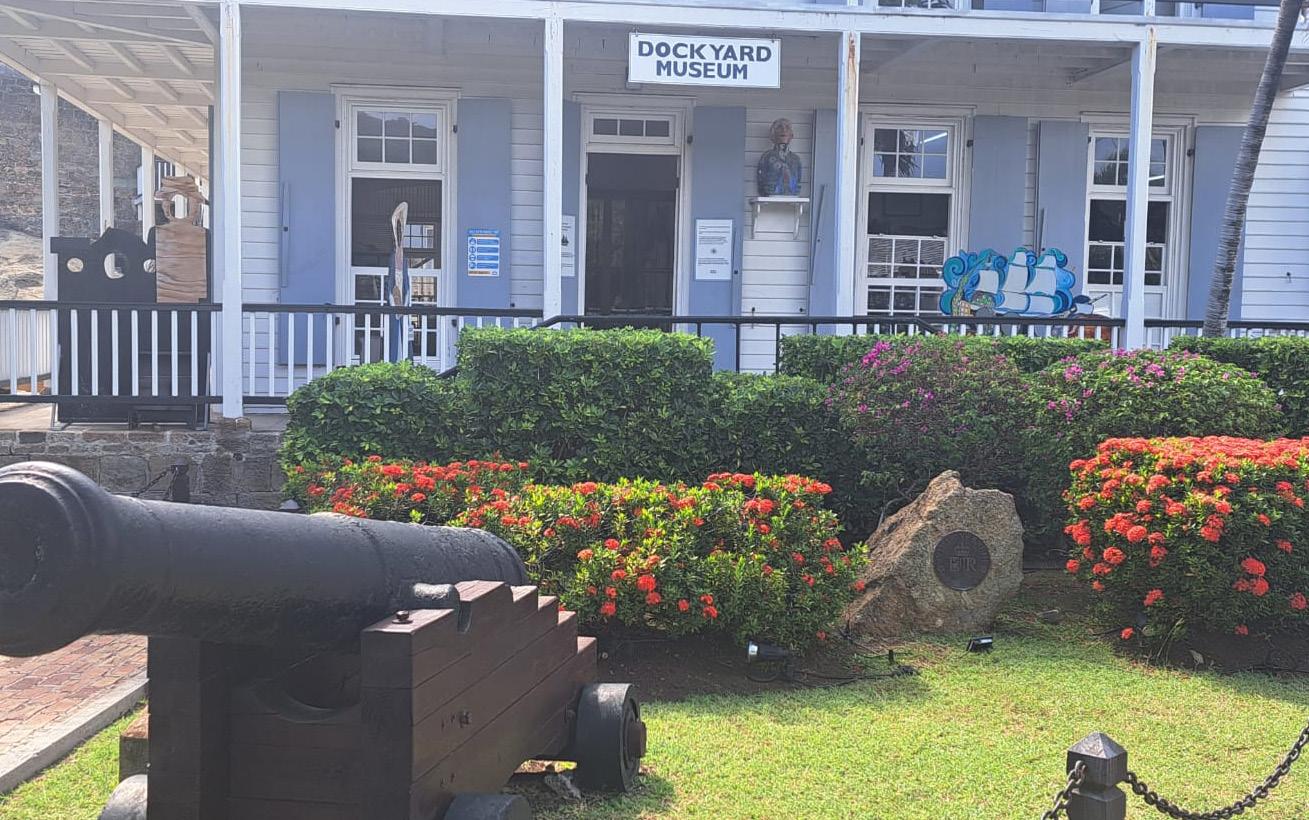
Based on the industry’s vulnerability to external shocks, building resilience ought to be a cornerstone of the recovery from COVID-19 and tourism planning in general. The tourism industries of Antigua and Barbuda, Saint Kitts and Nevis and Saint Lucia are currently concentrated on a few areas which characterize them as, sun, sea, and sand destinations.
One important strategy for building resilience in the tourism industries of these countries is
product diversification. Antigua and Barbuda, Saint Kitts and Nevis and Saint Lucia all have abundant resources which they can leverage, to further the development of additional products as outlined in the previous section.
By further diversifying their tourism offerings, these countries can enhance competitiveness, build resilience, and generate sustainable economic growth in the long term. This is especially critical in the post COVID-19 era, as destinations globally compete to recapture their share of the market.
In 2019, travel and tourism accounted for 13.9% of the Caribbean economy, representing growth of 4.4% and contributed 15.2% of the region’s jobs (World Travel and Tourism Council, 2022). Travel restrictions in the Caribbean
and its source markets, however, led to a contraction in the industry’s contribution to the region’s output by more than half in 2020.
The pandemic has therefore highlighted the extreme vulnerability of the tourism industry and by extension, the economies of tourism-dependent Caribbean nations.
ECLAC Caribbean’s objectives in this study included determining the impact of the COVID-19 pandemic on the tourism sectors of Antigua and Barbuda, Saint Kitts and Nevis and Saint Lucia; examining other challenges faced by tourism stakeholders in these countries; and identifying optimum areas for niche market development for diversifying the tourism sector.
The Development Account was established by the General Assembly in 1997 through its resolution 52/12 B, as a mechanism to fund capacity development projects of the economic and social entities of the United Nations. These include Department of Economic and Social Affairs (DESA) Economic Commission for Latin America and the Caribbean (ECLAC), Economic and Social Commission for Africa and the Pacific (ESCAP), Economic and Social Commission for Western Asia (ESCWA), Economic Commission for Europe (ECE), Economic Commission for Africa (ECA), UN Conference on Trade and Development (UNCTAD), UN Environment Programme (UNEP), UN Human Settlements Programme (UN-Habitat), UN Office on Drugs and Crime (UNODC).
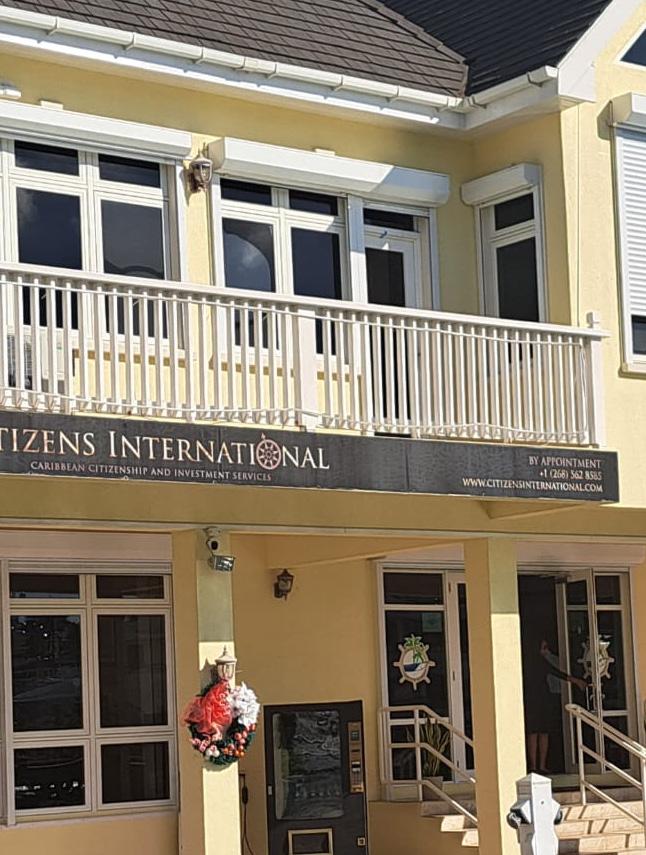
By building capacity on three levels, namely: (i) the individual; (ii) the organizational; and (iii) the enabling environment, the Development Account (DA) becomes a supportive vehicle for advancing the implementation of internationally agreed development goals (IADGs), and the outcomes of the United Nations conferences and summits. The DA adopts a medium to long-term approach in helping countries to better integrate social, economic and environmental policies and strategies for sustainable development.
Projects financed from the DA aim at achieving development impact through building the socio-economic capacity of developing countries through collaboration at the national, sub-regional, regional and inter-regional levels.
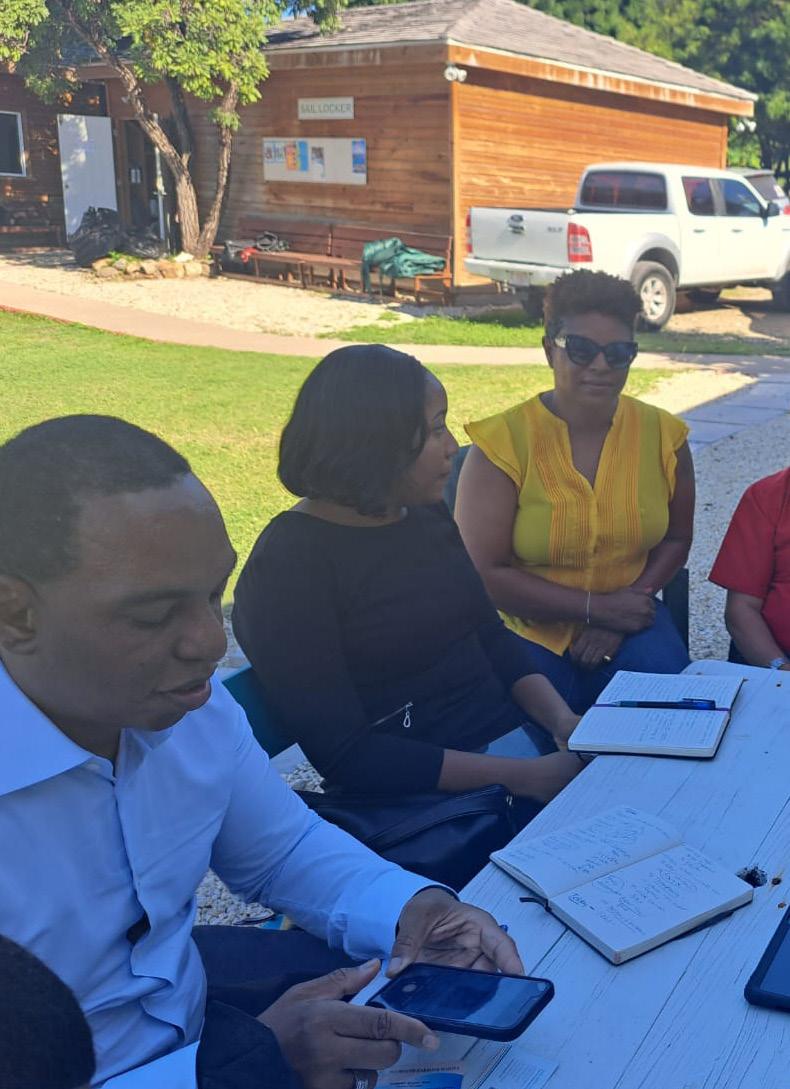
The Development Account provides a mechanism for promoting the exchange and transfer of skills, knowledge and good practices among target countries within and between different geographic regions, and through the cooperation with a wide range of partners in the broader development assistance community. It provides a bridge between incountry capacity development actors, on the one hand, and United Nations Secretariat entities, on the other. The latter offer distinctive skills and competencies in a broad range of economic and social issues that are often only marginally dealt with by other development partners at country level.
For target countries, the Development Account provides a vehicle to tap into the normative and analytical expertise of the United Nations Secretariat, and receive on-going policy support in the economic and social area, particularly in areas where such expertise does not reside in the capacities of the United Nations country teams.
The Account’s operational profile is further reinforced by the adoption of pilot approaches that test new ideas and eventually scale them up through supplementary funding, and the emphasis on integration of national expertise in the projects to ensure national ownership and sustainability of project outcomes.
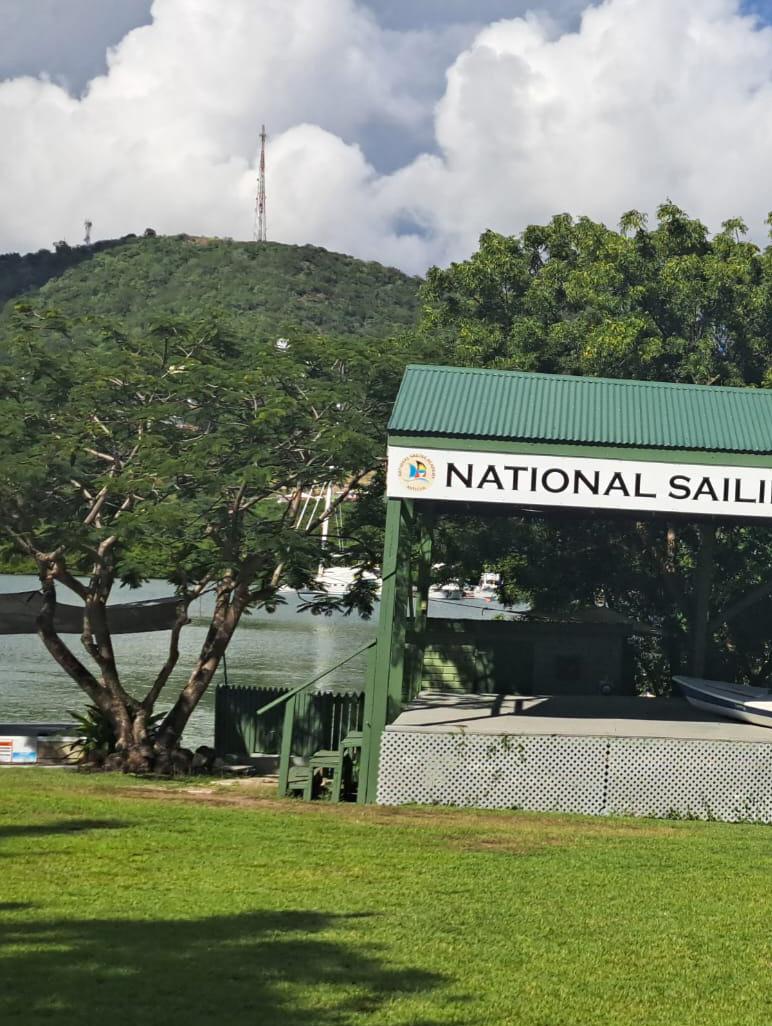
In 2020, the Development Account launched five joint projects to respond immediately to the COVID-19 pandemic and e-learning resources to support project implementation during the pandemic.
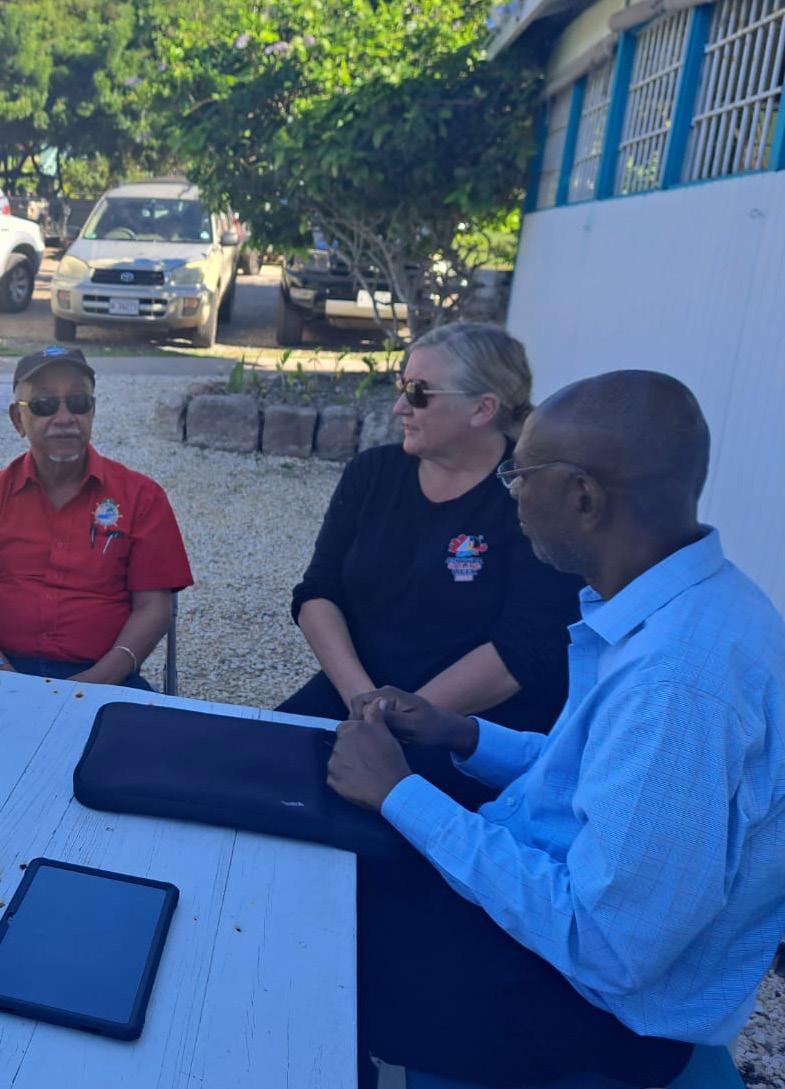
Every year, the Development Account launches new projects with subjects across the range of Sustainable Development Goals.
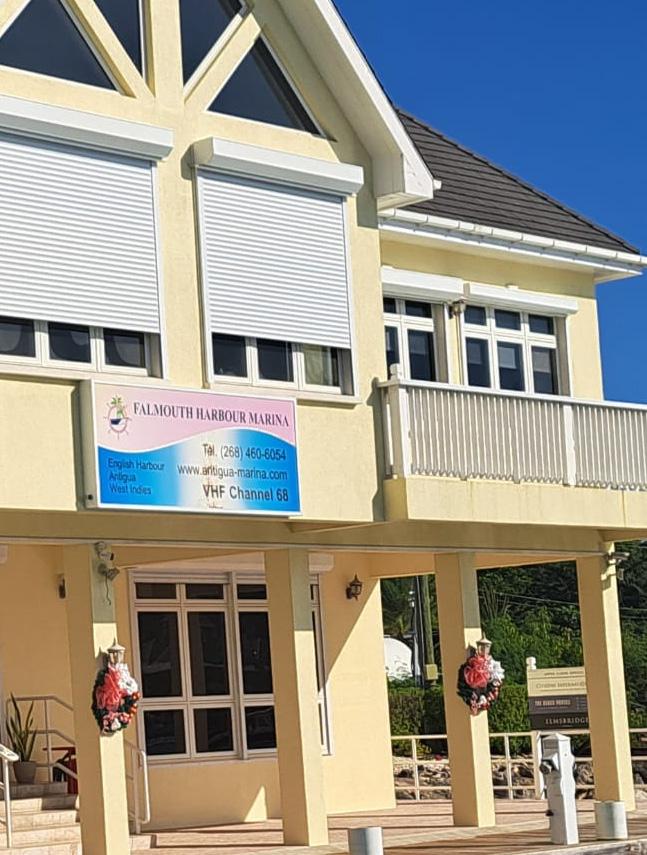
Development Account achievements are reported to the General Assembly in Reports of Secretary General.
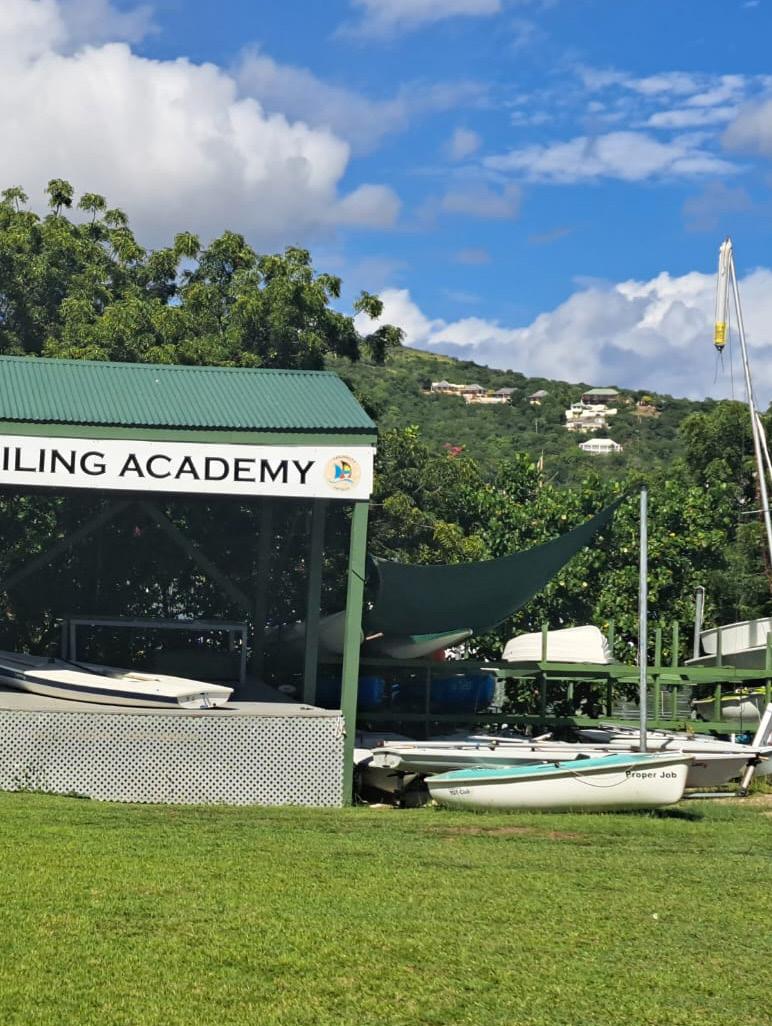 The team met with Alison Sly-Adams and her team Yachting and Marine Association and National Sailing Academy.
The team met with Alison Sly-Adams and her team Yachting and Marine Association and National Sailing Academy.
The popular Taste of Cayman Food and Drink Festival is making its long-awaited post-pandemic comeback in Grand Cayman.
The festival, which is scheduled for 13 May at Grand Cayman’s Camana Bay, has added a pair of celebrity chefs to the lineup: Sandwich King host Chef Jeff Mauro and Food Network Canada’s Top Chef Canada Season 10 winner, Tre Sanderson.
“Chef Jeff will host an exciting demonstration in the Experience Room and Chef Tre will be at the Bon Vivant Demo Stage cooking against his friend, turned festival rival, the Fire Master himself, Dylan Benoit,”
said Jay Ehrhart, director of the Cayman Islands Tourism Association. “We’ve had overwhelming interest and positive responses from our restaurant community and local talent whose presence will further elevate our designation as the Culinary Capital of the Caribbean.”
Local culinary stars will include
Young Cayman Chef 2022 winner
Chef Brittney Bodden, Chef Jessica Moore of Taste This Life, in-house Chef at the Governor’s residence
Chef Mark Lea, Director at Bestlife & Zest Chef Maureen Cubbon, owner of Smokies BBQ Chef Sara Mair-Doak and Mixologist Maya Grant of Fusion Mixology.
The festival will host more than 30 food and drink vendors. “The absence of events like Taste in recent years has been felt throughout the tourism industry and particularly the restaurant sector, which is in part what makes this year’s return so incredible,” Ehrhart said.
“We are thrilled to have Visit Cayman Islands as this year’s official presenter of Taste as it demonstrates the strength of our partnership locally and globally. More importantly, it allows for an increase in impactful opportunities to remind the world of the wonderful talent and experiences found in the Cayman Islands, and opens the door to have the caliber of international chefs like Tre and Jeff participate in the festival.”

With a travel time of fewer than 15 hours from Region One (North West Guyana) to Trinidad and Tobago, the recent government purchased Motor Vessel (M.V.) Ma Lisha is set to position the region as a hub for trade to the country and other Caribbean territories, according to Guyana President, Dr Mohamed Irfaan Ali.
At the recent commissioning ceremony for the vessel, Ali said this transportation factor is important, as Region One has the capacity to produce all the cassava, sweet potatoes, yams, turmeric, ginger, cage culture fish, and other high-value commodities that Trinidad and Tobago can source.
“This vessel opens up opportunities for food production, value-added food production and economic opportunities for the people of Region One. We are celebrating the launching of a vessel that will serve the people of Region One, but we are launching a vessel that will serve the economic transformation and
modernization of Guyana, one that will serve the building out of Guyana as a major center for food production,” he announced.
As the ship takes care of the transportation aspect of potential trade between Region One and T&T, Ali said the way is paved for investments in agroprocessing and port facilities, which will allow for the building of logistics and supply capacity. He added that as these developments unfold, it will require the expansion of government services to improve accessibility.
The M.V. Ma Lisha will ply the Barima-Waini/Georgetown route. The US $12.7 million ferry was built by Indian company Garden Reach Shipbuilders and Engineers Limited and is equipped with air conditioning and Wi-Fi access. The boat can carry 276 passengers, 18 crew members, and 14 sedantype vehicles along with two trucks.
President Ali added: “This vessel will also reduce the operating costs for the transport and harbors department. This will improve efficiency, reliability, while at the same time bringing a higher level of service to the people of these regions.”
Moreover, online booking will be implemented for travel on the vessel. Highlighting that the development of the people of Guyana and India is a priority for both countries, the President noted that the ship is a demonstration of the core value of the IndiaGuyana relationship. He noted that this partnership spans different sectors, such as education and agriculture.
On the aviation front, for example, Guyana and India, days ago signed an Air Services Agreement to facilitate direct flights between the two countries.
A recent study by ECLAC Caribbean has argued that improving statistical literacy among the Caribbean population will contribute to a better understanding and use of statistical data by all users, including business, mass media, civil society, academia, and the ordinary citizen.
Statistics in modern society encourage transparency and accountability, therefore citizens who are more statistically literate are better able to monitor government progress and hold them accountable for policy outcomes. (PARIS21, 2020; Poljicak and others., 2014).
The study, titled “Statistical literacy: an enabler of statistical capacity development in the Caribbean” reviews the level of statistical skills and competencies of staff of National Statistical Offices (NSOs) of the Caribbean. This is a critical step in enhancing the statistical capacity of National Statistical Systems (NSSs) of the subregion.
ECLAC’s study explains that in the Caribbean, statistical literacy was not well discussed in the development of administrative structure, nor considered enough in terms of human resource capacity. Very often, technical
competency in statistics was limited to the statisticians and others who analyzed data but is not widely found among data, users or managers at the ministries, departments and agencies of government, and employees with non-statistical roles in the private sector.
ECLAC recognizes that NSOs are key in ensuring that statistical literacy is improved at the country level. Through the NSOs, strategies for public education and training on statistical literacy can occur.
This will no doubt require collaboration and partnerships among data producers and users within and outside of the NSS.
The findings of the study suggest that greater focus be given to statistical literacy in programs and projects designed to promote statistical capacity in the Caribbean.

The study concludes with a comparison that data in the 21st century is just as important as oil in the 18th century. In today’s digital global economy, there is great recompense for those who can use data and use it for sustainable development.
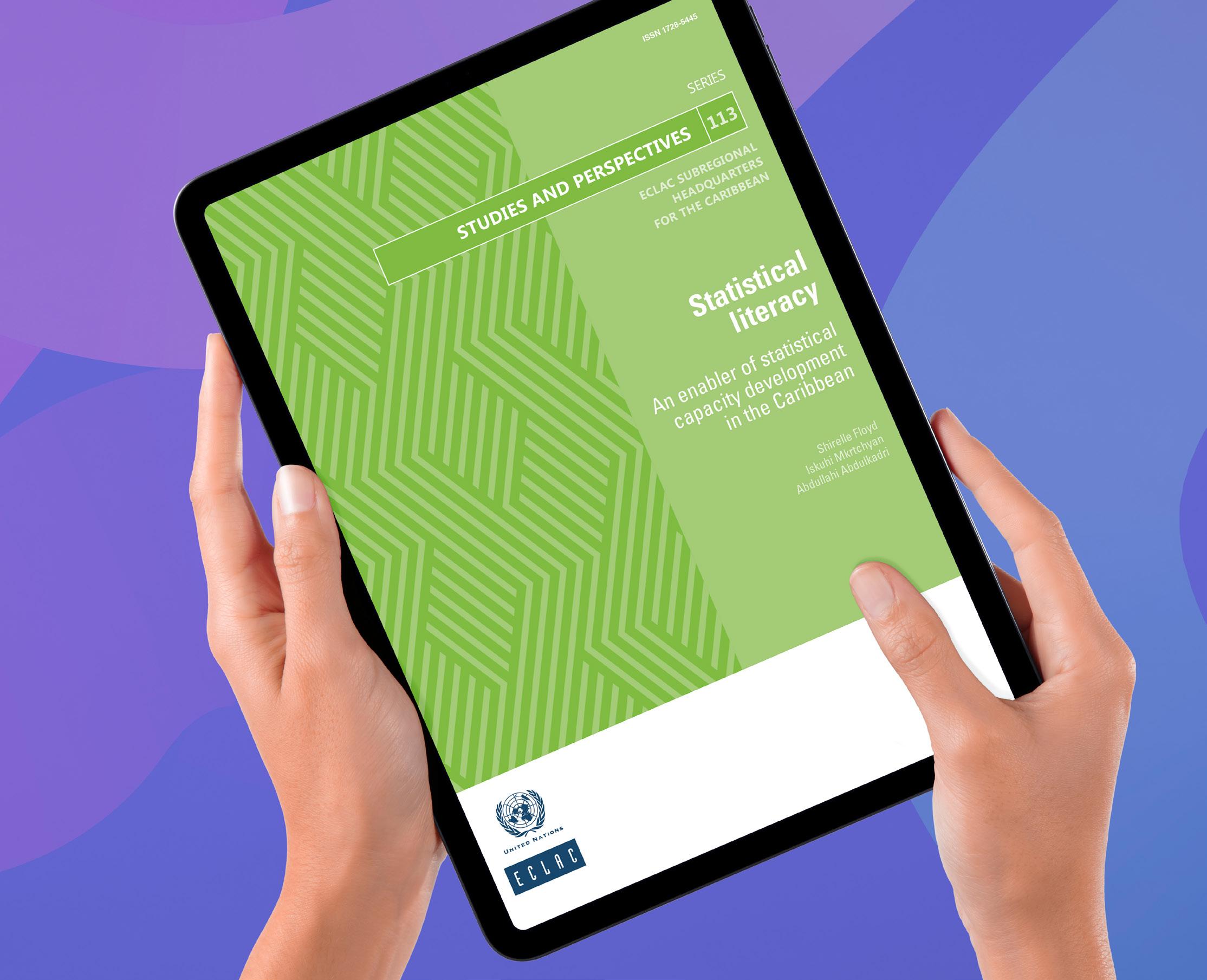
What you will need:
• 1 lb dry sea Scallops
• 2 tbsp unsalted Butter
• Salt and Pepper
• 1 tablespoon minced fresh Garlic
• Fresh Thyme sprig
• Lemon wedges
• ¼ teaspoon fresh minced Scotch bonnet pepper (optional)
• 1 tablespoon chopped Parsley (for garnish)
How to Make it:
Step 1: Remove the scallops from the refrigerator and let them sit at room temperature for 10-15 minutes.
Step 2: Pat them dry with a paper towel and season them generously with salt and pepper.
Step 3: Heat up a non-stick pan over medium-high heat and add 2 tablespoons of butter.
Step 4: When the butter is melted and foamy, and just beginning to smoke slightly, add the scallops to the pan, making sure to leave enough room between them.
Step 5: Sear the scallops for 2-3 minutes on each side, until they are golden brown and caramelized.
Step 6: Add thyme sprig 1 minute before removing scallops from the heat.
Step 7: Remove the scallops from the pan and add another tablespoon of butter to the same pan.
Step 8: Add the minced garlic.
Step 9: When the butter is melted and foamy, add the scallops back into the pan and swirl them around to coat them with the garlic butter.
Step 10: Add the optional scotch bonnet pepper.
Step 11: Squeeze some lemon juice over the scallops, remove from the heat garnish with chopped parsley and serve hot.

